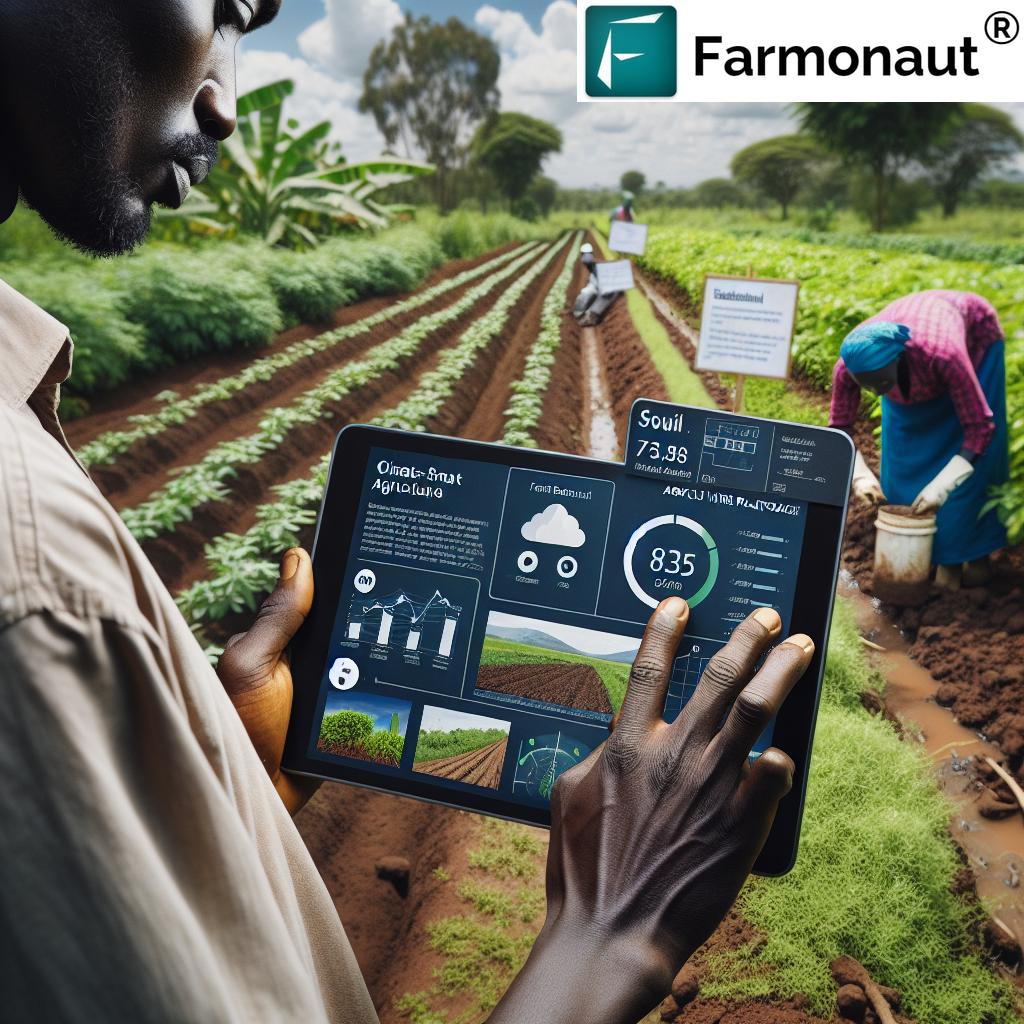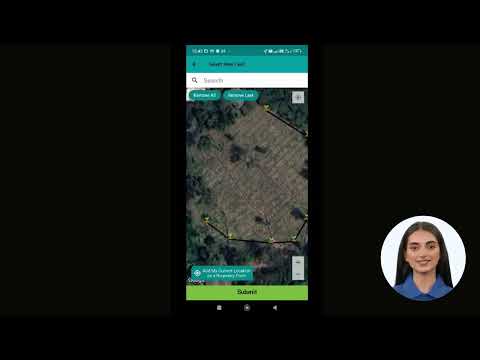Revolutionizing South Sudan’s Agriculture: The Crucial Role of Soil Mapping in Sustainable Farming Practices
“South Sudan’s agriculture spans diverse climatic zones, impacting soil fertility across the country’s 619,745 square kilometers.”
On World Soil Day, we find ourselves at a critical juncture in South Sudan’s agricultural landscape. As we delve into the intricate relationship between soil health and sustainable farming practices, we uncover the immense potential that lies within our nation’s diverse terrain. Join us as we explore how soil mapping techniques and agricultural technology adoption can revolutionize South Sudan’s farming sector, paving the way for enhanced food security and economic growth.
Understanding South Sudan’s Soil Diversity
South Sudan, with its vast expanse of 619,745 square kilometers, boasts a remarkable variety of climatic zones, each presenting unique challenges and opportunities for agriculture. From the lush equatorial forests to the semi-arid regions, our country’s soil composition varies significantly, influencing crop yields and farming strategies across different areas.
Dr. Pio Kur Deng, an esteemed Associate Professor at the University of Juba, emphasizes the critical need for improving soil awareness in South Sudan. He states, “Our country has six distinct climatic zones, each affecting soil differently due to variations in temperature and rainfall.” This diversity underscores the importance of targeted soil management approaches tailored to specific regions.
The Myth of Universal Fertility
One common misconception that Dr. Kur addresses is the belief that South Sudanese soil is universally fertile. This oversimplification can lead to ineffective farming practices and missed opportunities for optimization. The reality is far more complex, with soil fertility varying greatly across different zones and even within smaller geographic areas.
To truly harness the potential of our agricultural lands, we must dispel this myth and embrace a more nuanced understanding of our soil’s characteristics. This is where the crucial role of soil mapping comes into play.
The Urgent Need for Comprehensive Soil Mapping
Since gaining independence, South Sudan has yet to conduct a comprehensive soil mapping initiative. This lack of detailed soil information poses significant challenges for agricultural development and sustainable farming practices. As Dr. Kur points out, “Our soil is heterogeneous, which requires tailored management strategies.”
A nationwide soil mapping project would provide invaluable data on:
- Soil pH levels
- Organic matter content
- Nutrient profiles (N, P, K)
- Water retention capacity
- Soil texture and structure
This information is essential for developing targeted strategies to improve soil health, optimize crop selection, and implement sustainable farming practices across South Sudan’s diverse landscape.
The Role of Government in Soil Mapping and Management
Victor Silvano, the Director General for Agriculture Education and Trainings in the Ministry of Agriculture and Food Security, emphasizes the government’s crucial role in spearheading soil mapping efforts. He states, “Understanding our soil is vital for adopting new technologies to enhance food security in South Sudan.”
The government’s involvement is essential for:
- Coordinating large-scale soil sampling efforts
- Establishing a national soil database
- Developing policies that promote sustainable soil management
- Facilitating partnerships between research institutions and farmers
- Allocating resources for soil conservation and improvement projects
By taking a proactive approach to soil mapping and management, the South Sudanese government can lay the foundation for a more resilient and productive agricultural sector.
Leveraging Technology for Precision Agriculture
In the digital age, precision agriculture solutions offer tremendous potential for optimizing farming practices in South Sudan. By integrating satellite imagery, GPS technology, and soil sensors, farmers can gain real-time insights into their fields’ conditions and make data-driven decisions.
Farmonaut, a pioneering agricultural technology company, provides innovative solutions that can significantly benefit South Sudanese farmers. Their satellite-based farm management platform offers:
- Real-time crop health monitoring
- AI-based advisory systems
- Resource management tools
- Blockchain-based traceability
These technologies can help farmers optimize resource use, improve crop yields, and adapt to changing environmental conditions more effectively.
Explore Farmonaut’s precision agriculture solutions:
The Importance of Soil Nutrient Analysis
A critical component of effective soil management is understanding the nutrient profile of agricultural lands. Soil nutrient analysis provides valuable information on the availability of essential elements such as nitrogen, phosphorus, and potassium, as well as micronutrients that play crucial roles in plant growth and development.
By conducting regular soil nutrient analyses, farmers in South Sudan can:
- Identify nutrient deficiencies or excesses
- Optimize fertilizer application
- Improve crop quality and yields
- Reduce environmental impact through precise nutrient management
- Save costs by avoiding unnecessary fertilizer use
Implementing widespread soil nutrient analysis practices across South Sudan will require a concerted effort from government agencies, research institutions, and agricultural extension services. By providing farmers with access to affordable and reliable soil testing services, we can empower them to make informed decisions about soil management and crop nutrition.
Climate Zones and Soil Fertility in South Sudan
To better understand the relationship between climate zones and soil fertility in South Sudan, let’s examine a comparative table of soil characteristics across the country’s diverse regions:
| Soil Characteristic | Equatorial Zone | Tropical Savanna | Semi-Arid Zone |
|---|---|---|---|
| pH Level | 5.5 – 6.5 (Slightly acidic) | 6.0 – 7.0 (Neutral) | 7.0 – 8.5 (Slightly alkaline) |
| Organic Matter Content | High (3-5%) | Medium (2-3%) | Low (0.5-1.5%) |
| Nitrogen (N) Level | High | Medium | Low |
| Phosphorus (P) Level | Medium | Low | Very Low |
| Potassium (K) Level | Medium | Medium | Low |
| Water Retention Capacity | High | Medium | Low |
| Recommended Sustainable Practices | Agroforestry, Crop rotation | Conservation tillage, Cover crops | Drought-resistant crops, Water harvesting |
This table illustrates the significant variations in soil properties across South Sudan’s climatic zones, emphasizing the need for tailored approaches to soil management and crop selection in different regions.
Sustainable Farming Practices for South Sudan
Given the diverse soil conditions across South Sudan, implementing sustainable farming practices is crucial for long-term agricultural productivity and environmental conservation. Some key practices that can be adapted to local conditions include:
- Conservation Agriculture: Minimizing soil disturbance, maintaining soil cover, and practicing crop rotation to improve soil health and reduce erosion.
- Integrated Soil Fertility Management: Combining organic and inorganic fertilizers to optimize nutrient availability and soil structure.
- Agroforestry: Integrating trees and shrubs into crop and livestock farming systems to enhance soil fertility and provide additional income sources.
- Water Conservation Techniques: Implementing rainwater harvesting, drip irrigation, and other water-saving methods to improve water use efficiency in agriculture.
- Climate-Smart Agriculture: Adopting practices that increase productivity while enhancing resilience to climate change and reducing greenhouse gas emissions.
By promoting these sustainable farming practices and adapting them to the specific needs of different regions in South Sudan, we can work towards a more resilient and productive agricultural sector.
“World Soil Day emphasizes sustainable soil management, crucial for improving food security for South Sudan’s 11 million people.”
The Role of Agricultural Education and Training
To effectively implement new farming technologies and sustainable practices, agricultural education and training play a pivotal role. Victor Silvano, Director General for Agriculture Education and Trainings, emphasizes the importance of extensive knowledge about soil conditions for adopting new agricultural technologies.
Key areas of focus for agricultural education in South Sudan should include:
- Soil science and management
- Precision agriculture techniques
- Sustainable farming practices
- Climate-smart agriculture
- Water management in agriculture
By investing in comprehensive agricultural education programs, South Sudan can build a workforce equipped with the knowledge and skills necessary to drive innovation and sustainability in the farming sector.
Leveraging Technology for Soil Management
In the digital age, technology plays a crucial role in revolutionizing soil management practices. Farmonaut’s cutting-edge agritech solutions offer powerful tools for South Sudanese farmers and agricultural professionals to optimize their soil management strategies.
Key features of Farmonaut’s platform include:
- Satellite-based crop health monitoring
- AI-powered advisory systems for precision agriculture
- Soil moisture analysis
- Weather forecasting and climate data integration
These technologies enable farmers to make data-driven decisions about irrigation, fertilizer application, and crop management, leading to more efficient resource use and improved yields.
Explore Farmonaut’s API for custom agricultural solutions:
The Future of Soil Mapping in South Sudan
As we look to the future, the development of a comprehensive national soil database remains a top priority for South Sudan’s agricultural sector. This database will serve as a foundational resource for:
- Informing agricultural policy decisions
- Guiding research and development efforts
- Supporting farmers in making informed crop and management choices
- Facilitating the adoption of precision agriculture techniques
- Enhancing food security strategies at a national level
By combining traditional soil sampling methods with advanced remote sensing technologies and data analytics, South Sudan can create a dynamic and up-to-date soil information system that will drive sustainable agricultural development for years to come.
Conclusion: A Call to Action for Sustainable Soil Management
As we commemorate World Soil Day, we are reminded of the critical importance of sustainable soil management for South Sudan’s agricultural future. The challenges we face are significant, but so are the opportunities for innovation and growth. By embracing comprehensive soil mapping, leveraging advanced agricultural technologies, and promoting sustainable farming practices, we can build a more resilient and productive agricultural sector that ensures food security for generations to come.
We call upon government agencies, research institutions, farmers, and technology providers to work together in this crucial endeavor. Through collaboration and a shared commitment to sustainable soil management, we can unlock the full potential of South Sudan’s agricultural lands and create a brighter future for our nation.
FAQs
- Why is soil mapping important for South Sudan’s agriculture?
Soil mapping is crucial for understanding the diverse soil conditions across South Sudan’s climatic zones, enabling tailored farming practices and optimized resource use. - How can precision agriculture benefit South Sudanese farmers?
Precision agriculture technologies, such as those offered by Farmonaut, provide real-time insights into crop health and soil conditions, allowing farmers to make data-driven decisions and improve yields. - What role does the government play in promoting sustainable soil management?
The government is essential in coordinating soil mapping efforts, establishing a national soil database, developing policies, and facilitating partnerships between research institutions and farmers. - How can farmers in South Sudan access soil nutrient analysis services?
Efforts are being made to expand access to affordable soil testing services through government agencies, research institutions, and agricultural extension services. - What are some sustainable farming practices suitable for South Sudan?
Sustainable practices include conservation agriculture, integrated soil fertility management, agroforestry, water conservation techniques, and climate-smart agriculture approaches.







